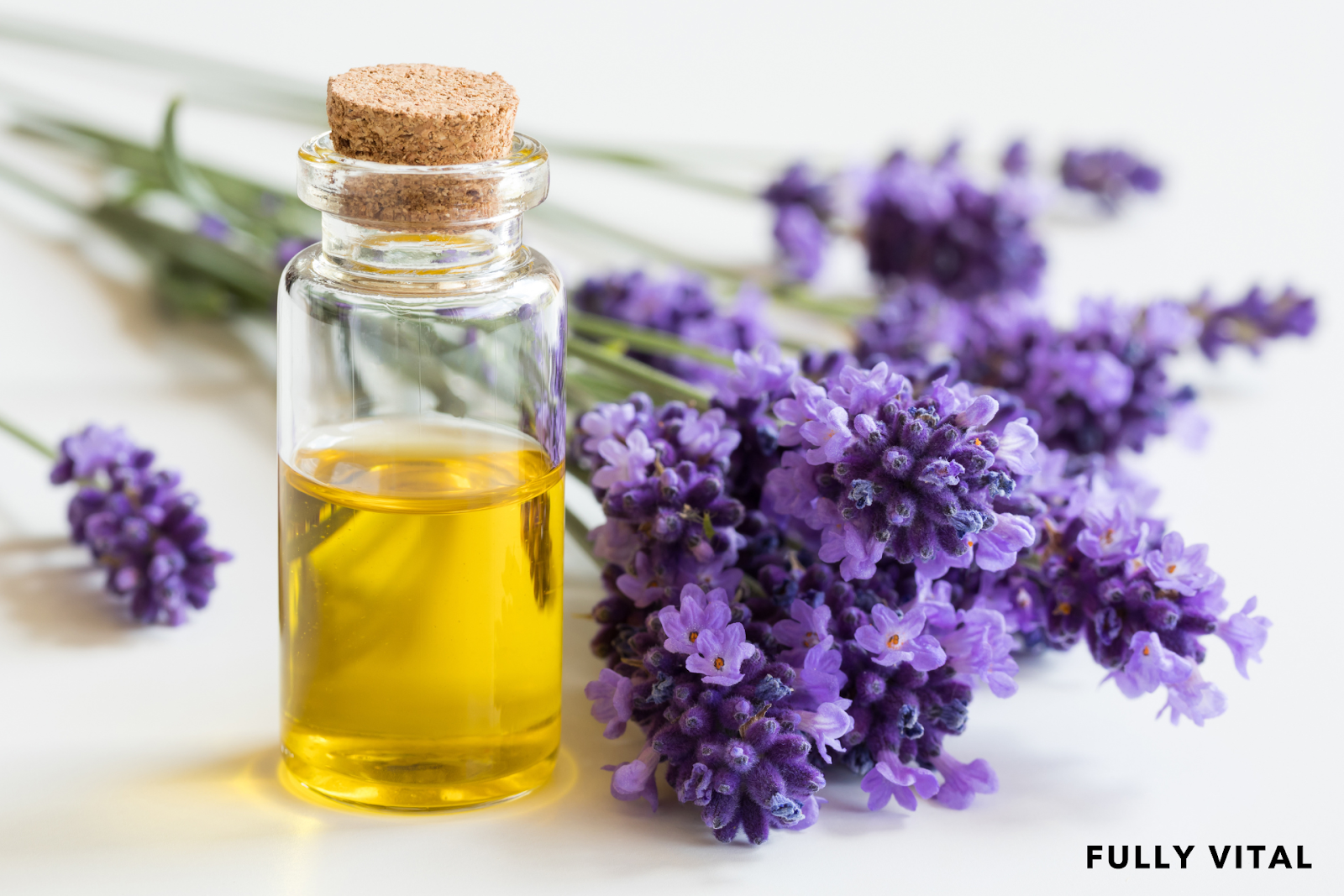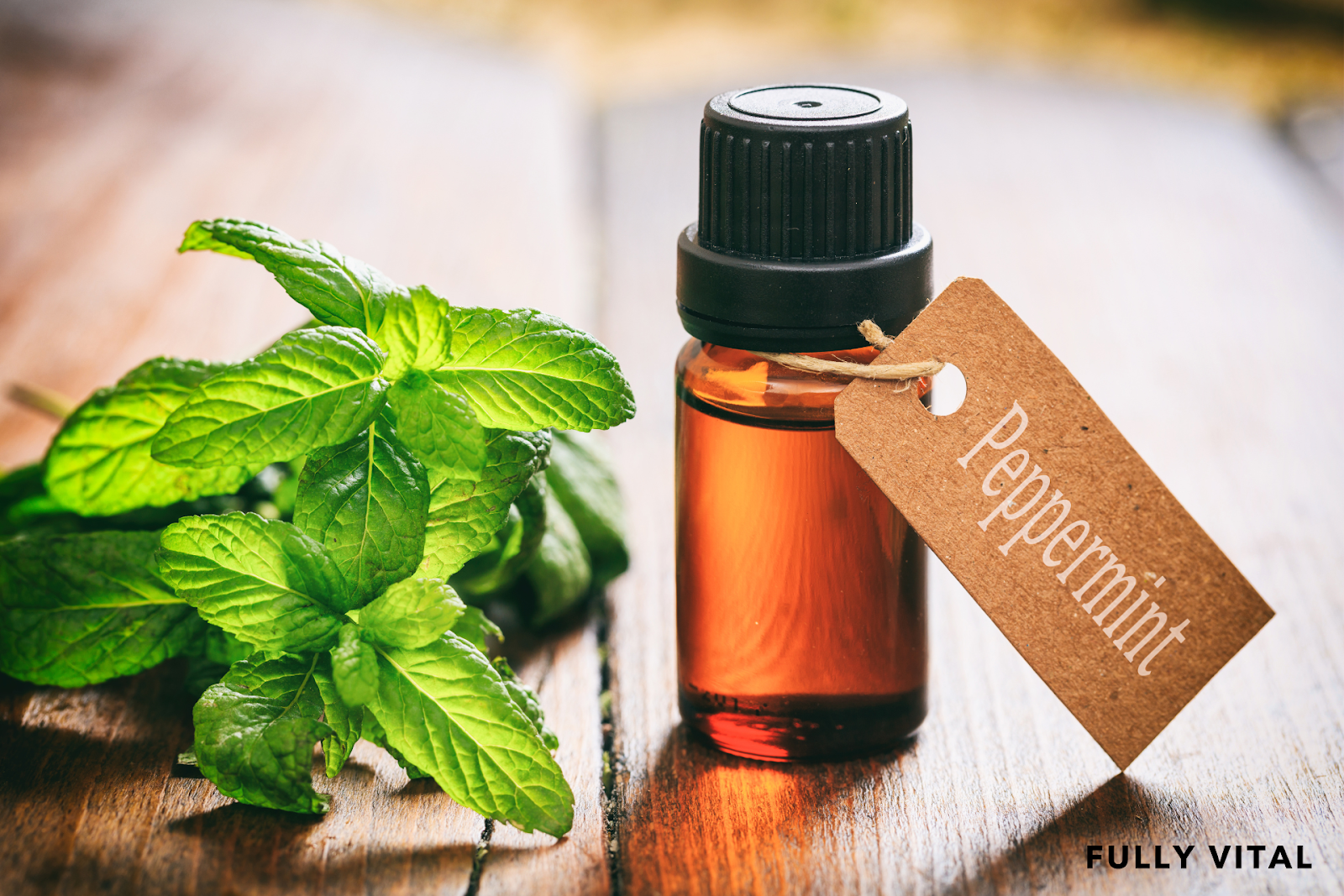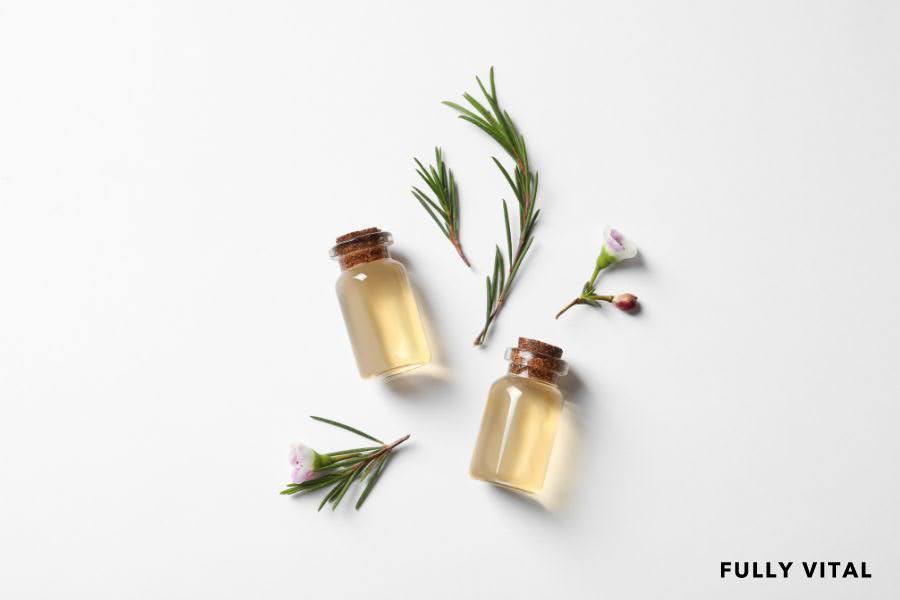
Lavender Oil: Soothing Scalps For Better Hair Growth
Hair health starts at the scalp—a fact often overlooked in the rush of daily life.
Yet, this fundamental principle is at the core of why exploring natural remedies like lavender oil is more than just a trend; it's about returning to basics for sustainable hair care.
Lavender oil, lauded for its soothing aroma, also holds promise for those looking to enhance their hair growth naturally.
This article unpacks the potential of lavender oil to nurture the scalp and encourage hair growth, backed by evidence and practical advice.
Faced with an overwhelming array of hair care products, consumers are turning their attention to solutions rooted in nature.
Lavender oil’s versatile benefits for hair might just make it a standout contestant.
Taking care of our hair is more than cosmetic—it's about health and wellbeing.
From understanding its historical use to diving into the science of how it can potentially aid in nurturing stronger, fuller hair, this article aims to guide you through the ins and outs of incorporating lavender oil into your hair care routine.
Forget the complex jargon and the myths that circulate around natural remedies; here we'll focus on the facts, benefits, and safety of using lavender oil for better hair growth.
What Is Lavender Oil And Its Role In Hair Care?
Lavender oil is derived from the flowers of the Lavandula angustifolia plant through a process of steam distillation.
This essential oil is renowned not only for its distinctive floral scent but also for a broad spectrum of therapeutic properties.
Its main components include linalool and linalyl acetate, which are compounds thought to contribute to its healing potential.
In the context of hair care, lavender oil's antiseptic and anti-inflammatory properties can be particularly beneficial for maintaining a healthy scalp environment, a precursor to optimal hair growth.

I LOVE MY HAIR NOW
FullyVital hair serum and hair vitamins made tremendous improvements in my hair. I truly love my hair now.
Shop Hair ProductsLavender’s Historical Significance in Hair Care
Tracing lavender's roots back through history reveals its longstanding connection with personal grooming and medicinal use.
Lavender oil has been used for centuries as a natural remedy for a variety of ailments, including those related to hair and scalp health.
Historical texts and traditional practices suggest that people valued lavender oil for its supposed ability to cleanse, soothe, and nourish the scalp and hair.
Today, we look to scientific studies to better understand how these historical uses translate into measurable effects on hair growth and scalp health.
How Does Lavender Oil Promote Hair Growth?
Key Properties of Lavender Oil for the Scalp
The soothing capabilities of lavender oil are attributed to its anti-inflammatory and antimicrobial properties, which can be advantageous for the scalp.
The health of hair follicles and the surrounding skin is crucial for hair growth.
Inflammation or microbial imbalances can disrupt the follicle lifecycle, leading to issues such as hair thinning or loss.1
The components in lavender oil, mainly linalool and linalyl acetate, help create a healthier environment for hair growth by addressing these foundational scalp concerns.
Scientific Evidence of Lavender Oil's Effectiveness
Studies examining lavender oil in the context of hair growth have begun to shed light on its potential benefits.
Research indicates that when regularly massaged into the scalp, lavender oil can improve blood circulation, reduce stress, and potentially decrease the rate of hair loss.2
It's suggested that because elevated stress levels can contribute to hair loss, lavender oil’s stress-relieving effects may inadvertently support hair retention and regeneration.
Furthermore, some animal studies have shown that applying lavender oil topically can increase the number of hair follicles and deepen follicle depth, which may translate to denser, fuller hair.
These findings pave the way for more in-depth research to expand our understanding of lavender oil's role in promoting hair growth.
What Are The Benefits Of Lavender Oil For Scalp And Hair Health?
Alleviating Scalp Conditions
The scalp is the foundation for healthy hair growth, and lavender oil may help manage various scalp conditions such as dryness, itchiness, or dandruff.
These issues often contribute to an unhealthy scalp environment, but the natural antifungal and antibacterial properties of lavender oil can provide relief.
By mitigating these common scalp irritations, lavender oil not only helps to soothe discomfort but also creates an optimal landscape for hair to thrive.
Enhancing Hair Strength
Beyond the scalp, lavender oil may positively influence the hair itself.
By applying lavender oil, one may notice improvements in hair texture and strength.
The oil's potential ability to reduce stress and its antioxidant properties could be conducive to minimising hair breakage, a common barrier to retaining length.
Stronger hair that's resistant to breakage is an integral part of maintaining a full and healthy mane.
While more expansive clinical trials are necessary to conclusively substantiate these benefits, preliminary studies and anecdotal evidence present a compelling case for incorporating lavender oil into a holistic hair care strategy.

What Are The Best Ways To Use Lavender Oil For Hair Growth?
Methods for Topical Application
To leverage the potential hair growth benefits of lavender oil, it’s essential to understand the proper methods for application.
The most effective way to use lavender oil for hair growth is through topical scalp treatments.
Blending a few drops of lavender essential oil with a carrier oil, such as coconut or jojoba oil, is recommended to mitigate any skin sensitivity.
This mixture can then be gently massaged into the scalp, which not only aids in oil dispersion but also stimulates blood flow to the hair follicles.
Scalp Care Tips Using Lavender Oil
Consistency is key with any hair care routine.
For noticeable results, make lavender oil application a regular part of your regimen, aiming for several times a week.
It’s also crucial to ensure that lavender oil is thoroughly washed out after treatment to prevent any build-up, which could potentially clog pores and counteract the benefits.
Additionally, incorporating a scalp massage while applying the oil can further enhance its efficacy by promoting additional circulation to the hair follicles.
Remember, a little goes a long way, so start with a modest amount of oil and adjust as necessary based on your scalp's response.
What Are The Advantages Of Lavender Oil Compared To Other Hair Remedies?
Comparison with Other Essential Oils
Many essential oils are vaunted for their hair and scalp benefits.
However, lavender oil's versatility is exceptional.
Compared to oils like peppermint, which is known for invigoration, or tea tree, which is acclaimed for its antiseptic properties, lavender oil provides a more holistic approach.
It is not just soothing and anti-inflammatory but also has properties that may enhance hair growth, offering a broader spectrum of benefits for overall hair health.
Combining with Other Natural Ingredients for Enhanced Effects
While lavender oil has its strengths, it can also work in harmony with other natural remedies for an additive or synergistic effect.
For instance, combining it with rosemary oil could amplify the effect on hair follicle stimulation, or pairing it with aloe vera might maximize the benefits of scalp conditioning.3
This adaptability makes lavender oil a versatile player in the natural hair care lineup.

What Precautions Should You Take When Using Lavender Oil?
Potential Risks and Allergic Reactions
Essential oils can be potent, and lavender oil is no exception.
Users should be aware of the potential for allergic reactions and always conduct a patch test before incorporating it fully into their routine.
Additionally, pregnant or breastfeeding women, those with hormone-sensitive conditions, or individuals taking certain medications should consult a healthcare professional before use.
Discover The Efficacy Of Youthful Hair!At Fully Vital, we are committed to enhancing the vitality of your hair. Our goal is straightforward: to offer you scientifically supported, state-of-the-art hair growth products that counteract the effects of aging. Bid farewell to tangled and troublesome locks, and welcome the allure of healthy, glossy hair. Revitalize Your Hair: Our products are thoughtfully crafted to decelerate and reverse the aging process of your hair, restoring its innate brilliance. Enhance Confidence: Revel in a revitalized sense of confidence as you witness the transformation of your locks, fostering a healthier connection with your hair. Unleash Your Hair's Potential: The time has come to unlock your hair's potential – explore the enchantment of Fully Vital's hair growth solutions today! Join the Expedition: Be a part of our community of individuals who have reignited their love for their hair. Experience the distinction with Fully Vital! Don't delay – commence your journey to youthful, vibrant hair now! |
Final Thoughts On Lavender Oil
In the quest for better hair growth, natural remedies like lavender oil offer more than just a fragrant experience—they offer a connection to time-honored traditions rooted in wellness.
This guide has navigated through the lavender fields of history, science, and practical application, providing insights into how lavender oil can be a valuable addition to your hair care regimen.
Whether seeking to soothe the scalp, strengthen hair, or simply incorporate a natural product into your routine, lavender oil presents a versatile option grounded in the potential for real benefits.
As with any natural remedy, personal experiences will vary, and it's essential to approach lavender oil use with patience, knowledge, and a touch of caution.
For those willing to regularly integrate it into their hair care practices, lavender oil could just be the botanical ally waiting to be embraced.
Check out our recent blogs:
- Platelet Rich Plasma Therapy: A Comprehensive Guide For Hair Growth
- Scalp Exfoliation: Unlocking The Secret To Healthy Hair Growth
- Unlocking The Knots: The Ultimate Guide To Detanglers
Frequently Asked Question About Lavender Oil
Can applying lavender oil directly to the scalp cause adverse effects?
Yes, applying lavender oil directly can lead to irritation or an adverse reaction due to its potency.
It's best to dilute it with a carrier oil prior to application.
How often should lavender oil be used for hair care?
Frequency can vary, but many recommend 1-2 times per week as part of a regular hair care routine.
It's important to monitor your scalp's response and adjust as necessary.
Are there any hair types that should avoid using lavender oil?
Lavender oil is generally suitable for all hair types, but individuals with particularly sensitive scalps or allergies to lavender should avoid use.
Can lavender oil be incorporated into homemade hair products?
Absolutely, lavender oil can be a great addition to homemade shampoos, conditioners, and hair masks due to its therapeutic properties.
Is lavender oil safe for colored or treated hair?
Yes, when diluted properly, lavender oil is safe for colored or chemically treated hair.
However, it's always prudent to do a patch test first.
Does lavender oil help with sleep, and how does that relate to hair health?
Lavender oil is well-known for its calming properties and can aid in relaxation and better sleep, which is beneficial for overall health including hair health.
Can men use lavender oil for hair care, particularly for issues like male pattern baldness?
Yes, men can use lavender oil as part of their hair care routine; however, its effectiveness for conditions like male pattern baldness would require further scientific study.
Are there any environmental factors that affect the efficacy of lavender oil on hair?
Extremes in temperature, UV exposure, and pollutants can affect hair health and may alter the effectiveness of topical applications like lavender oil.
Can I leave lavender oil in my hair overnight?
While it is safe for some people to leave diluted lavender oil in their hair overnight, it's recommended to start with shorter durations to see how your scalp reacts.
Which carrier oil is the best to mix with lavender oil for hair treatment?
The choice of carrier oil can depend on your hair type and personal preference, but common options include coconut, jojoba, and almond oils due to their own beneficial properties for hair.
Sources:
- Hugar, S. M., Gokhale, N., Uppin, C., Kajjari, S., Meharwade, P., & Joshi, R. S. (2022). The Effects of Lavender Essential Oil and its Clinical Implications in Dentistry: A Review. International Journal of Clinical Pediatric Dentistry, 15(3), 385–388. https://doi.org/10.5005/jp-journals-10005-2378
- Lee, B. H., Lee, J. S., & Kim, Y. C. (2016). Hair Growth-Promoting Effects of Lavender Oil in C57BL/6 Mice. Toxicological Research, 32(2), 103–108. https://doi.org/10.5487/tr.2016.32.2.103
- Enwright, P., Blank, S., Wells, B. M., Nightingale, L. M., & Torgerud, S. (2022). Effect of lavender and rosemary aromatherapy on test anxiety in chiropractic students. Journal of Chiropractic Education. https://doi.org/10.7899/jce-21-44








